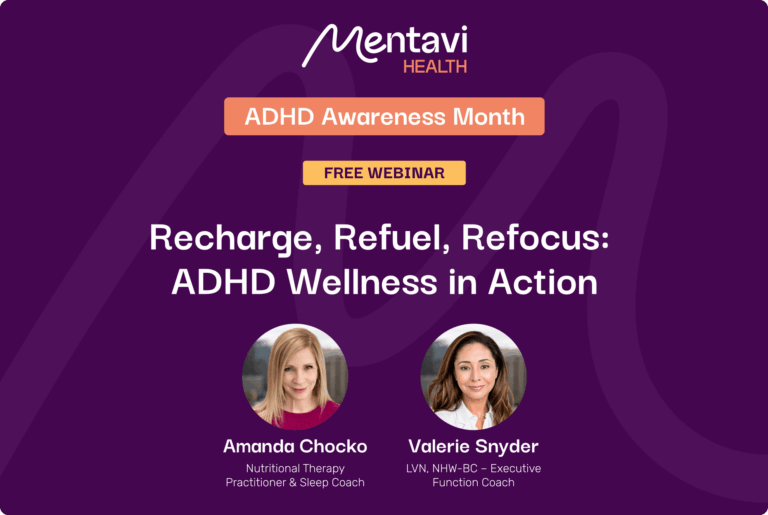
The stigma that surrounds ADHD and the way it is treated is not only real; it can also be dangerous on a number of levels.
People may mistrust best practice guidelines around ADHD, including medications that experts often recommend.
And parents sometimes decline to pursue diagnosis and treatment for their children. They may be hesitant because they feel some treatments could affect a child’s growth. Or they fear a child might get dependent on medication, or might need it forever. In part because of all of this, adults and children may also suffer the negative impacts of untreated ADHD.
Dr. Ken Schroeter, who joined the ADHD Online staff with 30 years’ experience practicing in pediatrics and behavioral health, weighs in on this continuing problem.
Seeking Diagnosis and Treatment
The stigma surrounding ADHD is significant. A study reported in the journal Psychiatric Services found that when parents of children who had just received a diagnosis of ADHD were interviewed, 77% reported experiencing stigma. Additionally, 44% were concerned about how society would label their child, and 40% reported feelings of social isolation or rejection or both. Researchers noted that these feelings led to parental concerns about how a diagnosis and treatment would affect their children’s future.
Dr. Schroeter notes that these fears and this stigma have an impact on his practice.
“We see stigma attached to any mental health disorder,” he says. “Often, young adults will come in to see us after they move out of their parents’ house and ‘escape’ their parents’ anti-mental health attitudes. This is actually a big change in our practice in recent years, seeing younger people who are the children of parents who were anti-mental health but who themselves feel comfortable with seeking treatment. But really, there remains a lot of misunderstanding about ADHD.”
These fears can affect the treatment plan, including any medications that a doctor might prescribe. Researchers publishing in the Journal of Child and Adolescent Psychopharmacology note that non-adherence to a treatment plan is a major reason why many such plans fail. The researchers note that clinicians must take this into account and “must be prepared to deal actively with psychosocial sources of noncompliance, such as parents’ or child’s difficulty in emotional acceptance of the diagnosis, fears of medication and media misinformation about medication.”
Mistrust of Current Best Practice Guidelines
The stigma attached to ADHD can also lead parents to call into question current best practice guidelines for this disorder. So what exactly are the current best practices? According to the U.S. Centers for Disease Control, the recommendations are based on a child’s age group and are as follows:
- For 4- to 6-year-old children, the first-line treatment is considered to be parent training in behavior management, either alone or with behavioral classroom interventions. If these interventions are not effective, then experts recommend the use of methylphenidate, a stimulant.
- For children and teens ages 6 to 18, the first-line treatment is considered to be an FDA-approved medication. This could be either a stimulant drug based on methylphenidate or amphetamine or one of four non-stimulant drugs — atomoxetine, guanfacine, clonidine or viloxazine — that have been approved for patients who do not tolerate stimulants. Experts also recommend that these medications are combined with parent training or classroom interventions, or both.
If parents do not trust these recommendations, they might not pursue these evidence-based best practices or even choose not to pursue treatment at all.
Dr. Schroeter says “parents who mistrust best practice guidelines can be challenging, as so many of them have ‘done their research.’ And trying to discuss issues that are contrary to their opinions makes them defensive and they become even more entrenched. Fortunately, most parents who are seeking treatment have good and relevant questions and are receptive to medical advice.”
For those parents who remain distrustful, that mistrust can lead to the third dangerous consequence of stigma: the negative outcomes for children and adolescents when treatment is not pursued.
Negative Outcomes
One of the most dangerous results of the stigma around ADHD medication is that it can lead to negative outcomes for both children and teens who have this disorder. Researchers publishing in the journal Archive of Diseases in Childhood note that in school-aged children, ADHD can lead to struggles with academics, rejection by peers, family dysfunction and feelings of low self-worth. In teens, it can interfere with normal adolescent development, lead to antisocial, aggressive or even criminal behavior, and raise the risk for problems like teen pregnancy or dropping out of school.
These problems persist into adulthood. Dr. Schroeter says: “Often, adult patients will come in and say things like, ‘Adults don’t need medication because they outgrow ADHD’ or ‘I’m just not organized and I get easily distracted’ — because they aren’t yet aware that ADHD extends into so much of their lives and they probably have dozens of related problems.”
In short, there is still a broad misunderstanding about ADHD in general and about medications to treat it in particular. This can deter parents of ADHD children, or even adults with ADHD, from pursuing the diagnoses and treatment that they need to manage their symptoms and learn to succeed even with the daily challenges ADHD brings.
Sources:
Journal of Child and Adolescent Psychopharmacology
Center for Disease Control and Prevention







